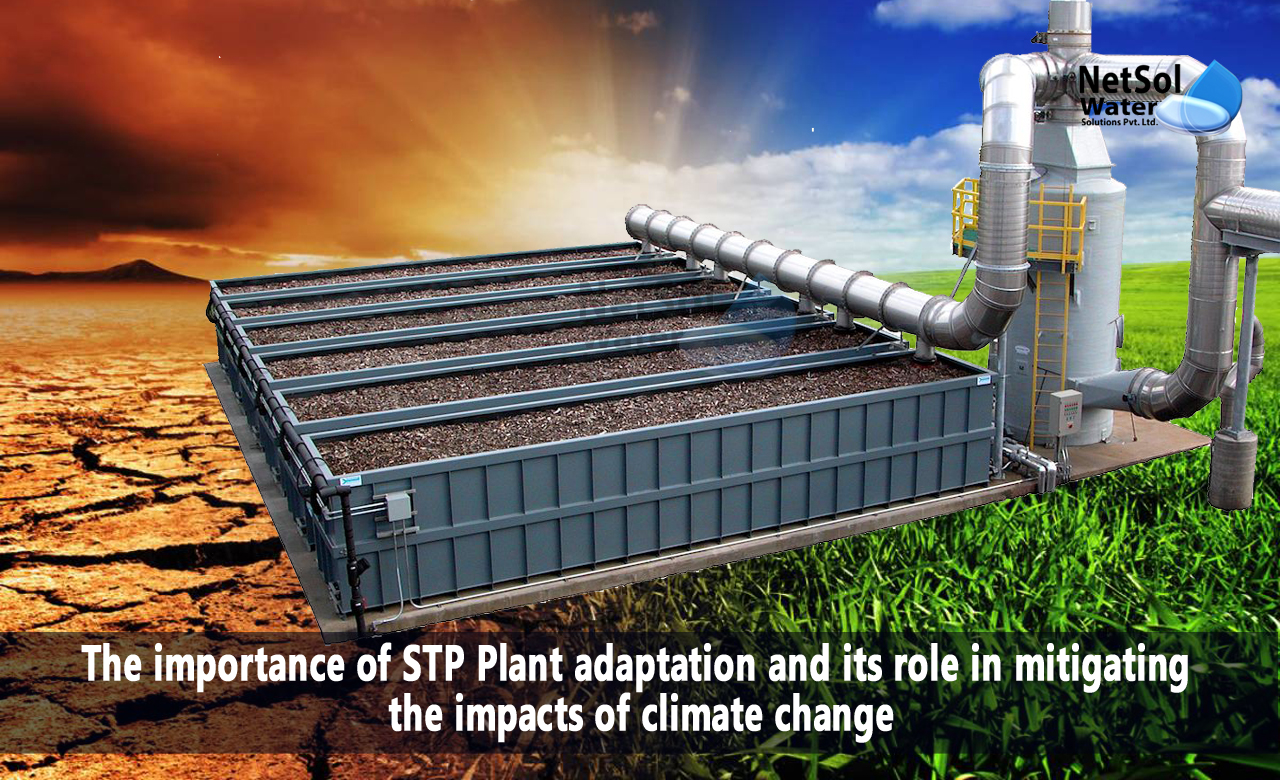STP Plant and Climate Change: Building Resilience in Wastewater System
As climate change continues to impact our planet, it poses significant challenges to various sectors, including wastewater management. Rising global temperatures, increased frequency and intensity of extreme weather events, and changing precipitation patterns are all factors that affect the functioning and effectiveness of sewage treatment plants. To address these challenges and build resilience in wastewater systems, it is crucial to integrate climate change adaptation strategies into the design, operation, and maintenance of sewage treatment plants.
In this blog post, we will explore the importance of sewage treatment plant adaptation and its role in mitigating the impacts of climate change.
Understanding the Challenges:
Climate change poses several challenges to sewage treatment plants, including:
- Increased Water Volumes and Intensity: Changing precipitation patterns can lead to more intense rainfall events, resulting in higher inflow and infiltration into sewage systems. This can overwhelm treatment plants, leading to overflow, pollution, and compromised treatment efficiency.
- Rising Sea Levels and Coastal Erosion: Coastal sewage treatment plants face the additional challenge of rising sea levels and coastal erosion. These factors can cause saltwater intrusion, damaging infrastructure and compromising the treatment process.
- Extreme Weather Events: Floods, hurricanes, and storms are becoming more frequent and intense due to climate change. Such events can damage or disrupt sewage treatment plants, leading to service interruptions and environmental contamination.
Building Resilience through Climate Change Adaptation:
To enhance the resilience of sewage treatment plants and mitigate the impacts of climate change, the following adaptation measures should be considered:
- Infrastructure Design and Upgrades: Sewage treatment plant infrastructure should be designed or upgraded to withstand extreme weather events. This includes elevating critical components, reinforcing structures, and implementing flood protection measures.
- Enhanced Monitoring and Early Warning Systems: Implementing advanced monitoring systems can help detect changes in wastewater flows, water quality, and weather conditions. Early warning systems can provide timely alerts, allowing plant operators to take preventive measures or make necessary adjustments.
- Diversification of Energy Sources: Climate change adaptation in sewage treatment plants should include diversifying energy sources. Incorporating renewable energy technologies such as solar or wind power can reduce dependence on fossil fuels and enhance the resilience of the plant during power outages or disruptions.
- Green Infrastructure and Natural Treatment Systems: Integrating green infrastructure and natural treatment systems can enhance the capacity of sewage treatment plants to handle increased water volumes. Measures like constructed wetlands, permeable surfaces, and rainwater harvesting systems can reduce stormwater runoff and improve overall treatment efficiency.
- Collaborative Planning and Emergency Response: Effective climate change adaptation requires collaboration among stakeholders, including plant operators, government agencies, and local communities. Collaborative planning and development of emergency response plans can ensure coordinated actions during extreme weather events or system failures.
Benefits of Climate Change Adaptation in Sewage Treatment Plants:
Integrating climate change adaptation strategies into sewage treatment plants brings several benefits:
- Resilience and Continuity: Adaptation measures enhance the resilience of sewage treatment plants, reducing the risk of service interruptions and ensuring continuous wastewater treatment even during extreme weather events.
- Environmental Protection: By maintaining efficient treatment processes, adaptation measures help prevent the release of untreated or partially treated wastewater into water bodies, protecting ecosystems and public health.
- Resource Efficiency: Adaptation measures can lead to improved resource efficiency, such as energy conservation through renewable energy integration, reduced water consumption, and optimized operational practices.
- Community Health and Safety: Effective wastewater treatment safeguards public health and reduces the risk of waterborne diseases. Climate change adaptation ensures the continuous functioning of treatment plants, thereby protecting the well-being of communities.
Conclusion:
Sewage treatment plants play a vital role in maintaining a clean and sustainable environment. As climate change impacts intensify, integrating climate change adaptation strategies into the design and operation of these plants becomes crucial. By building resilience in wastewater systems, we can mitigate the risks posed by climate change, ensure uninterrupted treatment processes, protect the environment, and safeguard public health. Embracing adaptation measures not only strengthens the capacity of sewage treatment plants but also contributes to a more sustainable and climate-resilient future.
Netsol Water is Greater Noida-based leading water & wastewater treatment plant manufacturer. We are industry's most demanding company based on client review and work quality. We are known as best commercial RO plant manufacturers, industrial RO plant manufacturer, sewage treatment plant manufacturer, Water Softener Plant Manufacturers and effluent treatment plant manufacturers. Apart from this 24x7 customer support is our USP. Call on +91-9650608473, or write us at enquiry@netsolwater.com for any support, inquiry or product-purchase related query.



